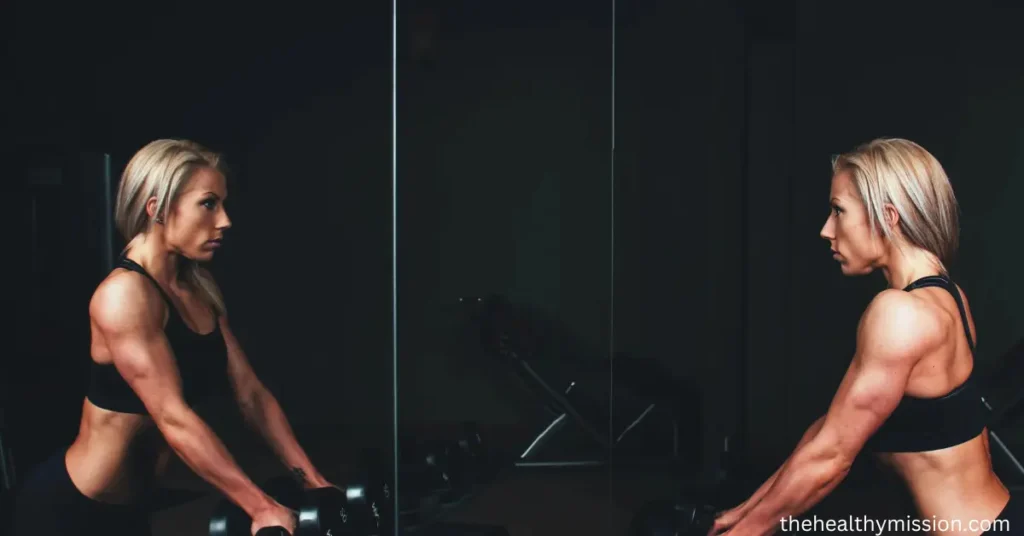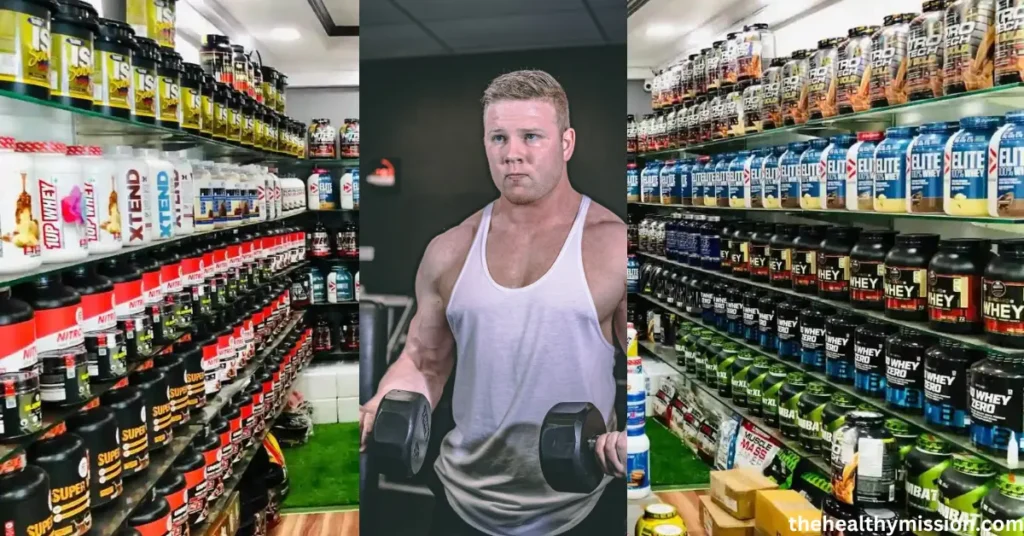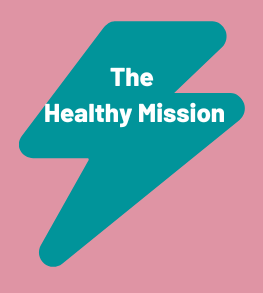The pursuit of a lean and sculpted physique is a central goal for many bodybuilders. To achieve this, they often follow a specialized diet known as the bodybuilder fat loss diet. This dietary approach is designed to help bodybuilders shed excess body fat while preserving muscle mass, resulting in a defined and chiselled physique.
Contents
hide
3
Bodybuilder Fat Loss Diet
5
Are there any Supplements that can aid in Fat Loss for Bodybuilders?

This article will explore the key components of a bodybuilder’s fat loss diet, discuss important considerations, and provide valuable insights to support individuals in their quest for a leaner physique.
Bodybuilder Fat Loss Diet
When it comes to achieving a lean and defined physique, bodybuilders are renowned for their dedication, discipline, and mastery of nutrition. A key component of their success lies in the bodybuilder fat loss diet, a meticulously crafted eating plan that prioritizes fat burning while preserving hard-earned muscle mass.
1. Rise and Shine: Breakfast (7:00 AM)
The morning sets the tone for the day, and breakfast plays a vital role in jumpstarting the metabolism. A bodybuilder’s fat loss diet often includes a balance of protein, complex carbohydrates, and healthy fats.
a) Scrambled Egg Whites with Spinach: Whip up a protein-packed breakfast by combining egg whites with nutrient-rich spinach. Add some diced vegetables like bell peppers or mushrooms for added flavor and fibre.
b) Oatmeal with Berries and Almonds: Start your day with a bowl of steel-cut oats topped with fresh berries and a sprinkle of almonds. This fiber-rich meal will provide sustained energy and keep you satiated throughout the morning.
2. Mid-Morning Boost (10:00 AM)
To maintain a steady flow of nutrients and prevent muscle catabolism, bodybuilders often incorporate a mid-morning snack.
a) Greek Yogurt with Chia Seeds: Enjoy a serving of Greek yogurt, which is rich in protein, paired with a sprinkle of chia seeds. The combination offers a satiating mix of macronutrients and essential omega-3 fatty acids.
b) Protein Shake with Fruit: Prepare a protein shake using your favorite protein powder, mixed with water or almond milk. Add a handful of berries or a sliced banana for natural sweetness and added vitamins.
3. Power-Packed Lunch (1:00 PM)
Lunchtime is an opportunity to refuel and nourish your body with a well-rounded meal that supports muscle growth and fat loss. Consider these options for a satisfying lunch:
a) Grilled Chicken Breast with Quinoa and Roasted Vegetables: Opt for a lean source of protein like grilled chicken breast, paired with a side of nutrient-dense quinoa and a medley of roasted vegetables. This combination provides a balance of protein, complex carbs, and fiber.
b) Salmon Salad with Avocado: Create a refreshing salad by combining grilled salmon with mixed greens, cherry tomatoes, cucumbers, and avocado slices. Drizzle with a light vinaigrette for added flavor.
4. Pre-Workout Fuel (4:00 PM)
As your workout approaches, it’s crucial to fuel your body adequately to optimize performance and fat burning. Choose one of the following pre-workout snack options:
a) Whole Grain Toast with Almond Butter: Enjoy a slice of whole grain bread topped with a spread of almond butter. This snack offers a combination of complex carbs, healthy fats, and protein, providing sustained energy during your workout.
b) Cottage Cheese with Pineapple: Cottage cheese, packed with slow-digesting casein protein, paired with a serving of pineapple, can offer a great pre-workout snack. Bromelain, an enzyme that promotes healthy digestion and lowers inflammation, can be found in pineapple.
5. Post-Workout Recovery (6:30 PM)
After an intense workout session, the body requires replenishment and recovery. The post-workout meal is an opportunity to provide essential nutrients to aid muscle repair and prevent muscle breakdown. Consider the following options:
a) Grilled Steak with Roasted Sweet Potatoes and Steamed Broccoli: Choose a lean cut of grilled steak, such as sirloin or flank steak, for its high protein content. Pair it with a side of roasted sweet potatoes, which provide complex carbohydrates, and steamed broccoli, a nutrient-dense vegetable rich in fiber and vitamins.
b) Quinoa Bowl with Grilled Chicken and Mixed Vegetables: Create a protein-packed quinoa bowl by combining grilled chicken breast with cooked quinoa and a variety of colorful mixed vegetables like bell peppers, zucchini, and carrots. Drizzle with a light dressing or squeeze fresh lemon juice for added flavor.
6. Evening Snack (9:00 PM)
To satisfy late-night cravings and maintain a steady stream of nutrients, bodybuilders often include a well-balanced evening snack. Here are a couple of options:
a) Cottage Cheese with Flaxseeds: Cottage cheese, once again, proves to be a versatile and protein-rich option. Sprinkle some ground flaxseeds on top for additional fiber and omega-3 fatty acids.
b) Protein Smoothie with Spinach and Nut Butter: Blend a scoop of your favorite protein powder with a handful of spinach, a tablespoon of nut butter, and unsweetened almond milk. This creamy and nutritious smoothie offers a good dose of protein and healthy fats.
7. Bedtime Ritual (10:30 PM)
Before calling it a night, it’s essential to provide your body with sustained nourishment throughout the night. Consider the following bedtime snack options:
a) Casein Protein Shake: Casein protein powder, known for its slow digestion rate, is an ideal choice before bed. Mix it with water or almond milk for a creamy protein shake.
b) Greek Yogurt with Nuts: Enjoy a small serving of Greek yogurt topped with a handful of mixed nuts, such as almonds or walnuts. The combination of protein and healthy fats will help satisfy nighttime hunger.
How do Bodybuilders Lose Fat Without Losing Muscle
Losing fat while preserving muscle mass is a primary goal for bodybuilders during their cutting phase. This process requires a strategic approach that combines proper nutrition, targeted exercise, and smart supplementation.

Here are some key strategies that bodybuilders employ to lose fat without sacrificing muscle:
1. Calorie deficit with moderation: Bodybuilders aim to create a moderate calorie deficit to promote fat loss while minimizing muscle loss. A deficit of around 500-750 calories per day is often recommended. Drastic calorie reductions can lead to muscle breakdown, so it’s important to strike a balance.
2. Sufficient protein intake: Protein is crucial for muscle preservation during a fat loss phase. Bodybuilders typically consume higher protein levels, Usually, 1.2-2 grammes of protein are consumed per kilogramme of body weight. This promotes healing, inhibits muscle breakdown, and helps preserve muscular mass.
3. Resistance training: Engaging in regular strength training is essential for preserving muscle mass. Bodybuilders focus on lifting weights to stimulate the muscles and signal to the body that the muscle tissue needs to be preserved.
4. Progressive overload: Bodybuilders progressively increase the intensity, volume, or load of their workouts to continue challenging the muscles and stimulate muscle growth. This can be achieved through techniques like increasing weight, adding more repetitions, or decreasing rest periods between sets.
5. High-intensity interval training (HIIT): Incorporating HIIT workouts into the training regimen can help maximize fat burning while preserving muscle mass. HIIT involves alternating between intense bursts of exercise and short recovery periods, which has been shown to increase metabolic rate and promote fat loss.
6. Adequate rest and recovery: Giving the body sufficient time to recover is crucial for muscle preservation. Bodybuilders prioritize quality sleep, rest days, and adequate recovery between workouts to allow their muscles to repair and grow.
7. Proper supplementation: While not essential, certain supplements can support fat loss and muscle preservation. These may include branched-chain amino acids (BCAAs) to aid muscle recovery, omega-3 fatty acids for inflammation reduction, and caffeine or green tea extract for enhanced metabolism.
8. Monitoring progress and adjusting: Bodybuilders closely monitor their progress by tracking body composition changes, such as body fat percentage and muscle mass, rather than relying solely on scale weight. Adjustments to the diet and training program can be made based on these measurements to ensure consistent progress.
It’s important to note that losing fat without losing muscle is a gradual process and requires consistency, patience, and discipline.
Are there any Supplements that can aid in Fat Loss for Bodybuilders?
Yes, there are several supplements that bodybuilders often use to aid in fat loss. However, it’s important to note that supplements are not magic solutions and should be used in conjunction with a well-rounded diet and exercise program.

Here are some supplements commonly used by bodybuilders for fat loss:
1. Caffeine: Caffeine is a stimulant that can boost energy levels and increase metabolic rate, leading to enhanced fat burning. It can also improve focus and endurance during workouts.
2. Green Tea Extract: Green tea extract contains compounds called catechins, which have been shown to promote fat oxidation and increase metabolism. It may also have appetite-suppressing effects.
3. L-Carnitine: L-Carnitine is an amino acid that plays a role in fat metabolism. It helps transport fatty acids into the mitochondria of cells, where they can be used as a source of energy. Supplementing with L-Carnitine may enhance fat burning.
4. Conjugated Linoleic Acid (CLA): CLA is a fatty acid that has been studied for its potential to reduce body fat and improve body composition. It may help increase metabolic rate and promote the breakdown of stored fat.
5. Whey Protein: Whey protein is a high-quality protein source that is quickly absorbed by the body. It can help with muscle recovery and preservation during a fat loss phase, as well as promote satiety and prevent muscle breakdown.
6. Branched-Chain Amino Acids (BCAAs): BCAAs, including leucine, isoleucine, and valine, are essential amino acids that play a key role in muscle protein synthesis. Supplementing with BCAAs during workouts or throughout the day can support muscle recovery and minimize muscle loss during a calorie deficit.
7. Omega-3 Fatty Acids: Omega-3 fatty acids, commonly found in fish oil supplements, have anti-inflammatory properties and may improve insulin sensitivity. They can also support overall health and recovery during intense training.
What are Some Common Mistakes to Avoid When Following a Bodybuilder’s Fat-Loss Diet?
When following a bodybuilder’s fat-loss diet, it’s crucial to avoid common mistakes that can hinder progress and compromise muscle preservation. Here are some key mistakes to avoid:
-
Drastic calorie cuts: Rapidly reducing calories can lead to muscle loss. It’s important to create a moderate calorie deficit rather than drastically slashing calories. A gradual approach promotes sustainable fat loss while minimizing muscle breakdown.
-
Insufficient protein intake: Protein is essential for muscle preservation during a fat-loss phase. Failing to consume enough protein can hinder recovery, muscle maintenance, and fat loss. Ensure that you’re meeting your protein requirements based on your body weight and activity level.
-
Neglecting nutrient timing: Proper nutrient timing plays a crucial role in optimizing fat loss and muscle preservation. Failing to consume pre and post-workout meals/snacks can impact performance and recovery. Distribute your protein, carbohydrates, and fats strategically throughout the day to support energy levels and muscle preservation.
-
Overemphasizing cardio: While cardio exercise is beneficial for fat loss, excessive cardio sessions without adequate strength training can lead to muscle loss. Find a balance between cardiovascular exercise and resistance training to maintain muscle mass while burning fat.
-
Ignoring strength training: To preserve muscle during a fat-loss phase, it’s essential to prioritize strength training. Focusing solely on cardio can lead to muscle loss. Incorporate resistance training exercises that target all major muscle groups to maintain strength and muscle mass.
-
Neglecting recovery and sleep: Recovery is a critical aspect of muscle preservation and overall health. Failing to prioritize adequate sleep and recovery days can hinder progress and increase the risk of muscle breakdown. Aim for 7-9 hours of quality sleep each night and allow sufficient time for rest and recovery between workouts.
-
Overreliance on supplements: While supplements can support your efforts, they are not a substitute for a well-balanced diet and proper training. Avoid relying solely on supplements for fat loss. Instead, focus on nutrition, training, and lifestyle factors as the foundation of your progress.
-
Neglecting hydration: Hydration is often overlooked but plays a crucial role in various bodily functions, including fat metabolism and muscle recovery. Ensure you’re consuming an adequate amount of water throughout the day to support optimal performance and fat loss.
-
Lack of consistency: Consistency is key when it comes to achieving and maintaining fat loss while preserving muscle. Avoid frequent deviations from your diet and training plan. Stay committed to your goals, make sustainable lifestyle changes, and remain consistent with your efforts.
By avoiding these common mistakes, you can optimize your bodybuilder’s fat-loss diet, promote fat loss, and preserve your hard-earned muscle mass effectively. It’s always beneficial to consult with a qualified coach or nutritionist who can provide personalized guidance based on your specific needs and goals.
Can Bodybuilders Include Cheat Meals or Refeed Days in their Fat Loss Diet?
Yes, bodybuilders can include cheat meals or refeed days in their fat loss diet. Incorporating occasional cheat meals or refeed days can provide both physical and psychological benefits during a fat loss phase.
Cheat meals, typically once a week, allow bodybuilders to indulge in their favorite foods that may not fit within their regular diet plan. This can help satisfy cravings, boost motivation, and provide a mental break from strict dietary restrictions. However, it’s important to practice moderation and not go overboard during cheat meals to prevent excessive calorie intake.
Refeed days, on the other hand, are planned higher-calorie days strategically incorporated into the diet to replenish glycogen stores and provide a temporary boost to the metabolism. These days typically involve slightly increasing carbohydrate intake while keeping protein and fat levels consistent. Refeed days can help prevent metabolic adaptation, improve training performance, and alleviate feelings of deprivation that may arise during a prolonged calorie deficit.
You May Also like: Best Exercise to Lose Belly Fat at Gym
Conclusion
The bodybuilder fat loss diet is a well-structured approach that prioritizes fat burning while maintaining muscle mass. By following a carefully planned eating schedule and incorporating a variety of nutrient-dense foods, bodybuilders can optimize their fat loss journey while providing the necessary fuel for their intense workouts.
Remember that individual preferences, dietary restrictions, and specific goals may influence the customization of the diet. Consulting with a registered dietitian or nutritionist is recommended to tailor the diet to your unique needs. With dedication, discipline, and proper nutrition, you can embark on a transformative journey towards achieving a leaner, more sculpted physique.
FAQ’s
Ques: Does cheat meal affect muscle growth?
Cheat meals in moderation typically do not significantly affect muscle growth as long as overall nutritional requirements are met and the majority of the diet is composed of nutrient-dense foods.
Ques: What is the healthiest cheat meal?
-
Homemade pizza with whole wheat crust, lean protein (such as grilled chicken or turkey), plenty of vegetables, and reduced-fat cheese.
-
Sweet potato fries baked with minimal oil and seasoned with herbs and spices.
-
Grilled or baked salmon with a small side of whole grain pasta topped with a homemade tomato sauce.
-
Veggie burger made with a plant-based patty, served on a whole grain bun, and topped with avocado, lettuce, and tomato.
-
Fruit-based desserts like homemade fruit sorbet or a fruit salad topped with a dollop of Greek yogurt.
